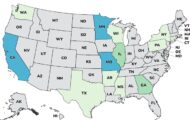The U.S. Department of Agriculture (USDA) Food Safety and Inspection Service issued three notices about beef inspection this week that provide instruction on: sampling raw beef for the National School Lunch Program, selecting raw beef trim for test samples and for receiving, inspecting and slaughtering live cattle imported from Mexico.
National School Lunch Program
The USDA “has become aware that additional instructions are needed” for personnel inspecting beef destined for the school lunch program. Inspectors should collect samples for E.coli testing even if the establishment does its own testing. In addition, inspectors should collect follow-up samples when either a USDA sample or a sample collected by the establishment tests positive for E. coli O157:H7.
Beef Trim Samples
This notice provides inspectors with instructions on how to randomly select beef manufacturing trimmings for testing. When establishments produce multiple types of trimmings, inspectors must collect some of each type. Products intended for exposure to anhydrous ammonia antimicrobial treatment (to be ammoniated) is subject to USDA sampling at the slaughter establishment before it is sent elsewhere to be ammoniated.
Mexcian Cattle
Cattle from Mexico may be imported for immediate slaughter under a new protocol effective January 30, 2012. Inspectors in charge should conduct awareness meetings so that all employees involved understand the following key points.
- Mexican cattle may only be slaughtered at designated establishments.
- Designated employees of approved establishments are eligible to break official seals on cattle trucks arriving at the establishment.
- Cattle from Mexico designated for immediate slaughter must be segregated at all times from non-Mexican cattle and must be slaughtered as a lot or sub-lots within 14 days of arrival at the plant.
- If there is a discrepancy in number or identification of Mexican cattle presented at the plant, authorized representatives must provide a prompt explanation to the establishment regarding unaccounted for animals.




